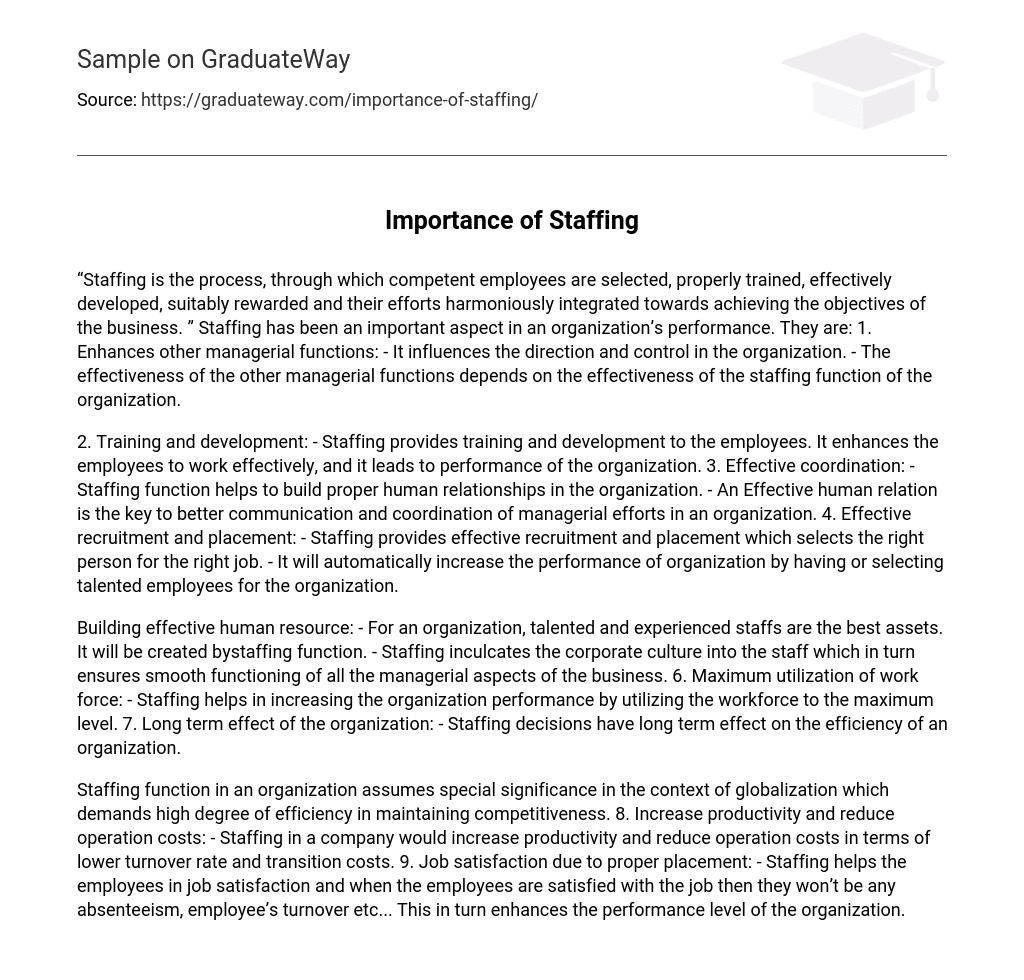“Staffing is the process of selecting, training, developing, rewarding, and integrating competent employees to achieve business objectives. It plays a vital role in an organization’s performance. It enhances other managerial functions by influencing direction and control within the organization. The effectiveness of these functions relies on the staffing function’s effectiveness.”
Staffing plays a crucial role in the overall performance of an organization by providing training and development opportunities to employees, enhancing their effectiveness. Additionally, staffing helps build strong human relationships within the organization, leading to better communication and coordination. It also ensures effective recruitment and placement by selecting talented individuals for the right job, ultimately increasing the organization’s performance.
Building an effective human resource: Talented and experienced staff are the organization’s greatest assets, which can be achieved through the staffing function. Staffing fosters the integration of corporate culture among employees, resulting in smooth managerial operations. Additionally, staffing enables the organization to maximize workforce utilization, leading to enhanced performance. Moreover, staffing decisions have a long-term impact on organizational efficiency.
Staffing function in an organization assumes special significance in the context of globalization which requires high efficiency to maintain competitiveness. It can increase productivity and reduce operating costs by minimizing turnover rates and transition costs. Additionally, it contributes to job satisfaction among employees, resulting in lower rates of absenteeism and turnover, ultimately improving the organization’s performance.





